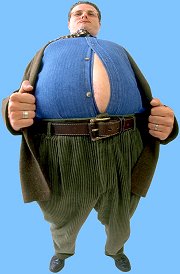
An astounding 700,000 people in U.S. poison themselves every year by taking the wrong medicine, too much of the right medicine, or because of an adverse reaction to a medicine.
Adverse drug effects accounted for 2.5 percent of emergency department visits in the years studied by the U.S. Centers for Disease Control and Prevention.
The main problem seems to be confusion. Patients take an over-the-counter or prescription pill, forget, and then take another too soon.
Some drugs, such as blood thinners and medications for diabetes, were especially prone to accidental misuse.
But can that number possibly be true? That's almost 1 million Americans. Or about 0.3 percent of the population. So, yes, it does make sense.
Imagine you take six drugs a day; one three times a day, another when you wake up and go to sleep; another every four hours, a second drug three times a day and as needed, another taken as needed or every two hours, and another than can only be taken with food.
How could you not be confused? Here's where a robot could really be useful. Load all of the drugs into the machine. After each load, enter the information about when the drug should be taken. The machine would also have an "as needed" button, but the robot would keep track of how many times it's pushed.
The robot would have a sound alarm and flashing light. The pills would emerge from a shoot, like a gum ball machine. The machine could only be opened with a key that's in the possession of the person in charge of keeping the robot supplied. It would run on electricity and also contain emergency batteries.
This shouldn't be too hard to design.
In fact, you could simply take the machine to the pharmacy. Simple.
Or, you could not smoke, stay slim, exercise, not drink in excess, have good genes and no family history of heart disease or cancer.
That's the ticket.





